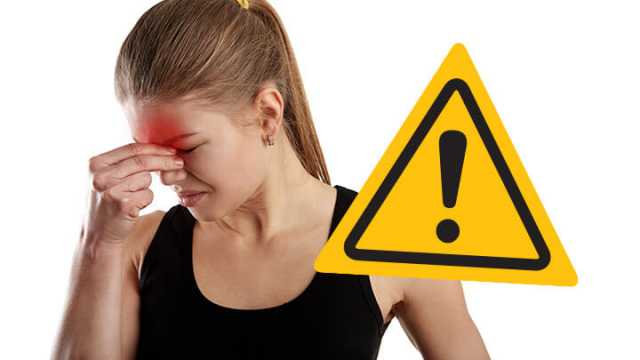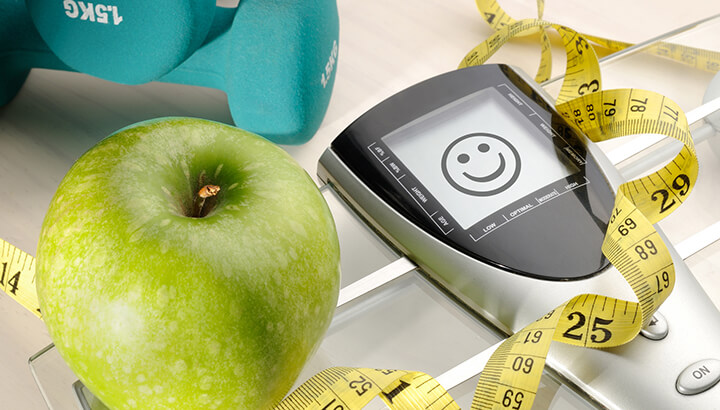14 Signs Of A Stroke You Should NEVER Ignore

A rapid response to someone having a stroke can mean the difference between minor damage and long-term disability. According to the National Institute of Neurological Disorders and Stroke, getting help for someone who may be suffering from a stroke within one hour is critical. Sadly, many stroke victims do not receive the emergency help that is needed to mitigate damage because many people are unaware of the early symptoms to look for.
The National Institute of Neurological Disorders and Stroke states that someone who receives a clot-dissolving drug within three hours of symptoms has a 30 percent greater chance of recovering without disability than someone who does not receive the drugs.
What is a stroke?
A stroke occurs when the blood supply to a part of the brain is cut off (ischemic stroke) or when a blood vessel in the brain ruptures, dumping blood into the spaces surrounding the brain cells (hemorrhagic stroke). When brain cells die, they are no longer receiving oxygen and nutrients from blood, or there is sudden bleeding into the brain.
Act FAST
Everyone should be familiar with the signs of a stroke. You never know when your knowledge could save a life or keep someone from suffering permanent damage. The National Stroke Association suggests using the term "FAST" to check for stroke symptoms:
- F = FACE: You may notice a droop or uneven smile.
- A = ARMS: Arms may be weak or numb. If you suspect a stroke, ask the person to raise their arms. If the arm drops down or appears unsteady, the person may be having a stroke.
- S = SPEECH: Slurred speech may indicate a stroke. Ask the person to repeat something to see how they respond.
- T = TIME: This last part of the acronym is a warning to respond quickly if you think someone is having a stroke. Call 911 immediately.
Additional symptoms of a stroke
In addition to the above, a person who is experiencing a stroke may present any of these symptoms:
1. Fatigue
We all get tired from time to time, but fatigue after a stroke is something different. Strokes can cause you to feel like you have zero energy. Simple tasks like moving through your home may feel like running a marathon. If your fatigue makes it difficult to participate in everyday activities, seek care as soon as possible. It could be a sign of stroke and is certainly a sign that something is not right.
2. Numb limbs (especially on one side)
While your arms may feel numb – a key component of acting FAST – you may also feel numbness in one of your legs. If you find that you have numbness along one side of your body, you are probably having a stroke. Very few conditions would have this sort of effect, but your doctor will be able to tell you definitively.
3. Problems with vision
Contrary to popular belief, people who have experienced a stroke can usually still see out of both eyes. Instead of losing full sight in one eye, you're likely to lose the same field of vision (i.e., to the right side of your body) from both eyes. It implies that while your eyes and optic nerve are unaffected, a part of the brain that translates information from the optic nerve is damaged.
4. Dizziness
A stroke in the brain stem can cause dizziness and vertigo as well as severe imbalance problems — you literally can't walk straight even with a lot of concentration. The American Stroke Association notes that it's important to note that dizziness by itself isn't a sign of a stroke, but if any of these other symptoms accompany it, it's time to seek medical care immediately.
5. Problems with balance and walking
It can be particularly difficult to walk straight, even without dizziness, especially if you're experiencing numbness in one of your legs. So even though it doesn't feel like the room is spinning, if you find that you can't help but bump into things, trip over your own feet or have suddenly become clumsy, it's a sign you've had a stroke.
6. Severe headache
The key here is that the headache doesn't resemble a headache you've had in the past. So, if you have migraines, you're not necessarily having a stroke if you've got a headache that feels familiar. If it's accompanied by other symptoms, though, then seek medical attention right away.
7. Confusion
Confusion could be a sign of a right-brain stroke. If you notice yourself or a loved one confusing the sequence of events or tasks or misinterpreting information, it might be a sign of a stroke. You may also experience a decrease in problem-solving ability. People who have had a stroke also can act impulsively out of nowhere and experience difficulty comprehending that they're acting out of the norm.
8. Involuntary eye movements
During and after a stroke, you may experience involuntary eye movements and problems seeing in general. The Sheffield Teaching Hospitals ophthalmology department states that as many as 68 percent of stroke victims experience eye problems, including misalignment of one eye — one may drift inward, outward, up or down — rapid, involuntary eye movements, called nystagmus, and problems with their eyelids. If you've had a stroke, you might also experience blurred vision and a loss of depth perception.
9. Difficulty swallowing
Difficulty swallowing is most common after a stroke, but it might signal that a stroke has occurred and you need medical attention. Symptoms include struggling to swallow when drinking, eating or taking medicine. It may also be hard to breathe. A small piece of good news is this symptom usually decreases over time as you heal after your stroke.
10.. Muscle stiffness
If you experience numbness down one side of your body, you may also experience muscle stiffness during and after your stroke. Quite simply, a stroke can damage the brain in such a way that it also damages how signals travel between it and the body. After a stroke, there can be a very long recovery time during which you may deal with drop foot – your toes catch while walking – problems with stamina and moving for long periods of time, as well as spasms in the muscles. If you experience any of these symptoms, seek medical attention because you may have experienced a stroke without realizing it.
11. Problems reading or understanding speech
Not only can your speech slur if you've had a stroke, but your understanding of what words mean could be affected. If you've had a stroke in the left side of your brain — where our language center resides — you could have a difficulty understanding what words mean.
Women can have unique symptoms
 In women, an upset stomach or vomiting may be a symptom of a stroke.
In women, an upset stomach or vomiting may be a symptom of a stroke.It is especially important to note that women who are having a stroke may have symptoms that are different than men. Here are some things to watch for:
- Weakness
- Shortness of breath
- Confusion
- Unresponsiveness
- Fainting
- Irritation
- Nausea
- Vomiting
- Hallucinations
- Hiccups
- Seizures
- Pain
How to minimize the risk of stroke
 Diet, exercise and a healthy lifestyle can reduce the risk of a stroke.
Diet, exercise and a healthy lifestyle can reduce the risk of a stroke.There are many things you can do to stay healthy and prevent a stroke from occurring:
- Eat more veggies, nuts and beans
- Reduce the amount of red meat you eat and replace it with fresh-caught seafood, free-range poultry and organic eggs.
- Reduce your consumption of unhealthy fats, especially those found in highly processed foods.
- Maintain a healthy weight.
- Treat diabetes if you have the condition.
- Reduce your consumption of sugars.
- Consume no more than 1500 milligrams (1/2 teaspoon) of sodium daily.
- Maintain a healthy blood pressure, ideally 120/80.
- Be sure to take your high blood pressure medication as directed.
- Get moderate exercise daily, at least 30 minutes.
- Don't smoke or chew tobacco.
- Drink alcohol in moderation.
Posted by: =?UTF-8?Q?=E2=99=A3_=E2=99=A3_=E2=99=A3M=2ED=2E_?= =?UTF-8?Q?HEGDE=E2=99=A3_=E2=99=A3_=E2=99=A3?= <hegde_csl@yahoo.co.in>
| Reply via web post | • | Reply to sender | • | Reply to group | • | Start a New Topic | • | Messages in this topic (1) |
To subscribe send a mail to Keralites-subscribe@yahoogroups.com.
Send your posts to Keralites@yahoogroups.com.
Send your suggestions to Keralites-owner@yahoogroups.com.
To unsubscribe send a mail to Keralites-unsubscribe@yahoogroups.com.
Homepage: http://www.keralites.net
No comments:
Post a Comment